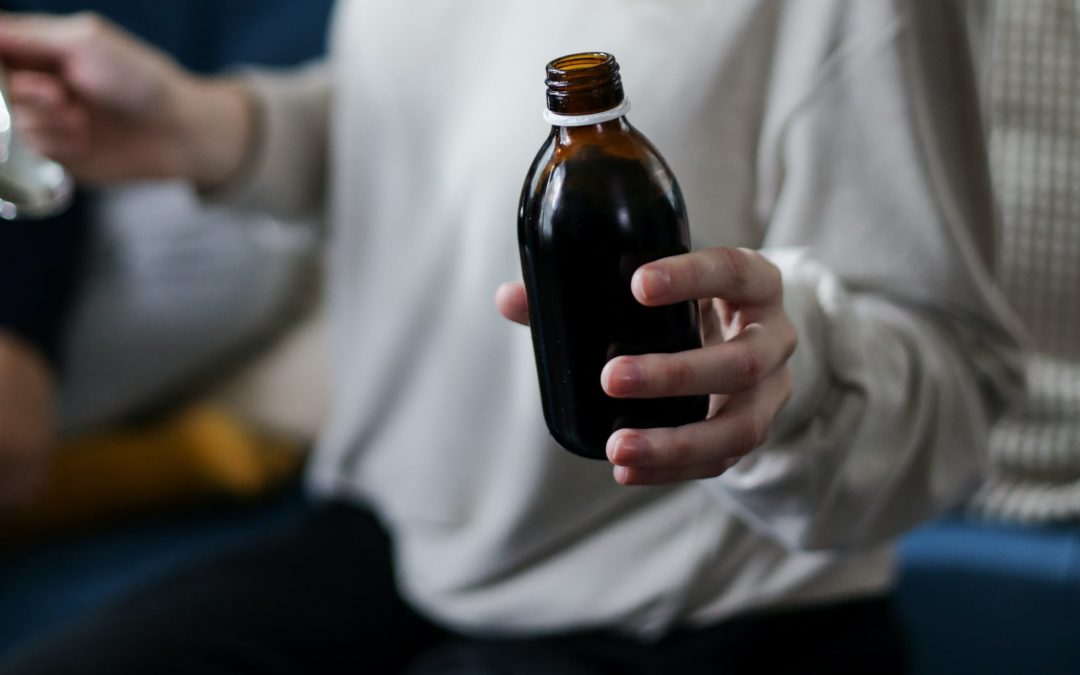Almost 21 million Americans have at least one addiction. It’s no wonder why addiction is considered such a crisis. Addiction is a spiritual battle that infects people like a plague.
People abuse all sorts of different substances. Some people are addicted to illegal drugs, some people wind up addicted to prescription medication, some people get addicted to huffing household objects such as glue and markers. But did you know that some people wind up abusing over-the-counter medications?
If you suspect that you or a loved one is suffering from Nyquil abuse, you’re not alone. Over-the-counter medicines have their own page on the National Institute on Drug Abuse’s website. While it may seem innocent at first, Nyquil drug abuse can lead to serious side effects.
If you or a loved one is suffering from a Nyquil addiction, it’s important to understand the consequences, the symptoms, the dangers, and what you can do to help. Thankfully, you’ve come to the right place. This article will walk you through all you need to know about Nyquil abuse.
Nyquil Abuse Symptoms
While Nyquil is an over-the-counter medication that’s safe when used correctly, its effects are similar to many of the effects of illegal drugs. The side effects of Nyquil abuse can be broken into three categories: side effects of the drug itself, side effects of abuse, and withdrawal.
Nyquil Side Effects
Nyquil is supposed to reduce symptoms of fever, cold and cough, and also act as a minor sedative. The effect of this is to help someone sleep through the night. There’s a similar product called Dayquill, which retains many of the same effects without the sedative.
However, just like all drugs, Nyquil comes with some side effects. Someone under the influence of Nyquil might exhibit signs of dizziness, blurred vision, slurred speech, dry mouth, stomach pain, nervousness, and nausea. Most people don’t suffer these effects, as it knocks them out pretty quickly.
None of these side effects are particularly fun, so it can be tough to understand why a person would want to abuse Nyquil. Because of this, it’s important to understand how exactly people abuse Nyquil.
Nyquil Abuse Side Effects
Nyquil is a sedative. This should give the knowledgeable reader an indication of how Nyquil is abused.
The use of Nyquil is part of a wider use of cold medicine drugs, a practice called Robotripping (named after the popular cold medicine Robitussin). One shouldn’t underestimate the possibility that someone abusing Nyquil could also be abusing different name-brand drugs.
Robitussin Effects
Some report that Robitussin gives a high similar to Marijuana. People on various online forums—such as Reddit and 4chan—have said the experience is meditative, sedative, and even minorly hallucinogenic.
Some users combine Robitussin with marijuana to maximize the effects. Marijuana may also reduce the negative side effects of cold medicine, which can allow someone to consume more and more, multiplying the effects.
Coricidin
Coricidin is a bit more of an upper. People abusing Coricidin act somewhere between people under the effects of caffeine and under the effects of cocaine. They’re reported to not be able to sit still and keep talking on and on.
Nyquil
People refer to Nyquil as a more “heady” high. The feeling gets concentrated in the brain, resulting in a sedative, minorly hallucinogenic experience, much like Robitussin.
Many people combine marijuana with Nyquil because Nyquil and marijuana intensify the effects of each other. The combination of marijuana’s body-relaxing effects and Nyquil’s heady-high creates a desirable effect for a lot of drug users.
Other people combine Nyquil with alcohol. It’s an unfortunate reality that a lot of people use Alcohol specifically to blackout. Nyquil helps people out who are trying to achieve this effect.
Dextromethorphan
Dextromethorphan, or DXM, is the main culprit in the problem of Nyquil addiction. DXM is one of the many chemicals that’s virtually innocent when taken in low doses, but when abused, produces hallucinogenic effects.
Sleep Abuse
It should also be noted that many people out there are abusing Nyquil to sleep. Nyquil is not an approved sleeping medication and is only supposed to be used by those suffering from an illness. However, since it’s so readily available to the public, it’s very easy for someone to try Nyquil on a night when they’re not able to go to sleep and fall into a habit.
Underreported
Because Nyquil is an over-the-counter medication, many counts of Nyquil abuse and overdose go underreported. Abuse of legal drugs is much more newsworthy, and there’s still a great deal of stigma out there about marijuana. Concerned parents generally try to keep their children away from alcohol more than they do from Nyquil.
Withdrawal Side Effects
It may come as a shock and surprise to some that over-the-counter medication can have withdrawal side effects. However drugs are drugs, and when your body winds up with a dependence on one, it’s not going to want to give it up.
Those suffering from Nyquil addiction may wind up sweating excessively, experiencing hot flashes, sinking into dissociative states, shaking and tremoring, expressing depression/anxiety/insomnia, feel deep cravings for Nyquil, and get chills. These symptoms are very similar to the symptoms of withdrawal from other drugs.
Rehab
Thankfully, there are many great rehab facilities to help you or a loved one deal with their addiction. Nyquil addiction might not constitute an addiction that needs a full in-patient detox program but does mean there are some issues that need to be addressed. Check out our Sober Living section, to see if it could benefit you.
Nyquil Abuse Is Serious
While many people suffer from the abuse of OTC medications, these stories aren’t often picked up. The news focuses on stories of alcoholism and opiate addiction, brushing aside countless instances of minor abuse. If you or a loved one is suffering from Nyquil abuse, it’s finally time to find some solace. Contact us today, and get yourself the help you deserve.






